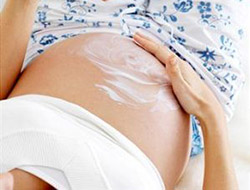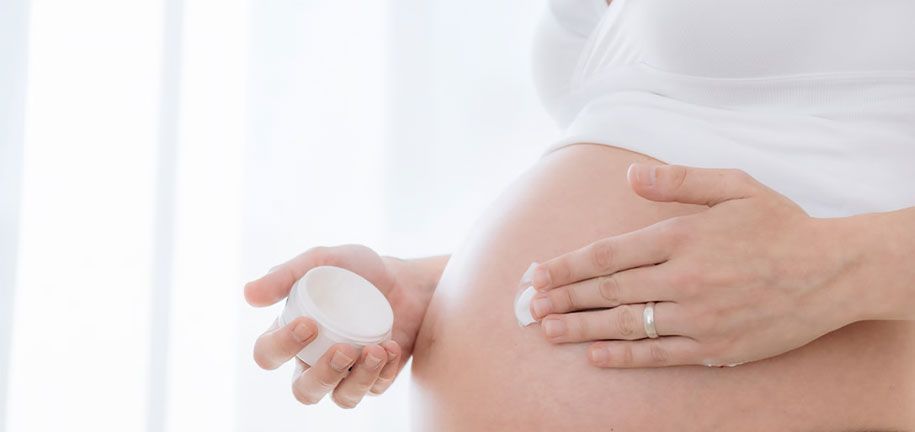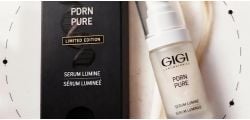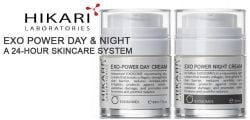
Common Skin Concerns During Pregnancy
Pregnancy can bring a lot of joy, but it also introduces several changes to your body, including your skin. Some common issues include:
- Pigmentation: Dark spots or hyperpigmentation, especially on the face.
- Rashes & Acne: Hormonal changes can lead to breakouts or irritated skin.
- Vein Issues: Swelling or varicose veins, particularly in the legs.
- Stretch Marks: As your body grows, the skin stretches, leading to potential marks on the abdomen, thighs, or breasts.
These changes are natural, but you can manage them with the right care.
Why Do These Changes Happen?
During pregnancy, hormonal shifts occur. Your body produces more progesterone, a hormone essential for pregnancy continuation, while the level of estrogen decreases. Estrogen typically helps regulate sebum production and maintain the skin's protective barrier, but its reduction can result in:
- Dry, sensitive skin: The skin may become more prone to dehydration and external irritants.
- Pigmentation: Dark spots or enlarged birthmarks due to hormonal changes.
- Rashes and Acne: Increased sensitivity can trigger breakouts or irritation, especially during the first and second trimesters.

Recommended Skin Care Practices
To keep your skin healthy and glowing during pregnancy, choose gentle, natural products. Follow these guidelines:
- Use Mild Cleansers: Opt for natural, alcohol-free cleansers and lotions to protect your skin’s natural barrier. Mild scrubs and enzyme peelings can be used to gently cleanse problem areas.
- Moisturize Regularly: Use products containing beneficial ingredients like:
- Squalene: Helps maintain skin moisture and elasticity.
- Hyaluronic Acid: Retains moisture, ensuring your skin stays hydrated.
- Vitamin E: Promotes skin elasticity, helping to prevent stretch marks.
- Protect from the Sun: Apply sunscreen daily with SPF 20 or higher. Choose mineral-based sunscreens with natural ingredients. Don’t forget to cover exposed areas like your arms and décolleté, and wear sunglasses for added protection.
- Prevent Stretch Marks: Apply a specialized cream to moisturize, soothe, and nourish the skin after bathing. Creams containing Vitamin E are great for improving skin elasticity, while natural oils and ingredients help stimulate microcirculation. Look for essential oils like neroli, geranium, lavender, or ylang-ylang in your skincare products, which can help relax and comfort you.
Make sure to massage anti-stretch mark creams into your belly, thighs, and breasts in circular motions to improve blood circulation and skin tone. It’s best to start using these creams from the 12th week of pregnancy.
Care for Your Legs
Swelling and discomfort in the legs are common during the later stages of pregnancy. To soothe and moisturize your legs, use creams and gels with natural extracts such as:
- Knotweed
- Chamomile
- Peppermint
- Menthol
These ingredients help prevent irritation, reduce puffiness, and relieve tired legs.
What to Avoid During Pregnancy
During pregnancy, certain cosmetic procedures should be avoided to protect both you and your baby. Refrain from:
- Deep chemical peeling
- Anticellulite massage
- Hot wraps
- Aggressive lifting treatments
- Radical whitening procedures
- Laser treatments
- Use of silicone or botox

If you’re ever in doubt or feel discomfort, consult a cosmetologist who can offer alternative, safe care options.
Final Thoughts
As you await the arrival of your baby, taking care of yourself is more important than ever. While your body may be changing, you can still look and feel beautiful. The key is to choose natural, gentle skincare products that nourish your skin without causing harm to you or your baby. Be mindful of what you use and, when in doubt, seek advice from a healthcare professional to ensure the best care for both you and your child.
















